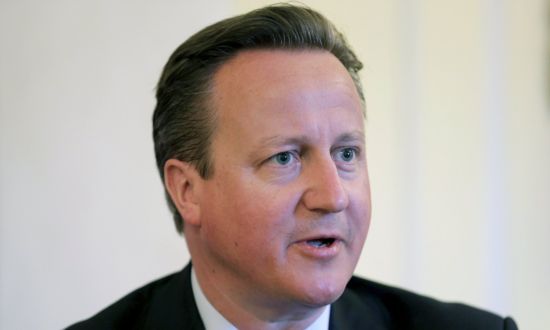|
Victims of press abuse have accused
David Cameron of failing to keep the
“solemn promises” he made during the
phone hacking scandal and of betraying a
pledge to put the public before powerful
proprietors.
Gerry and Kate McCann, the parents of a
missing child, and Christopher
Jefferies, wrongly accused of murder,
are among the signatories to the letter
reminding Cameron of the promises he
made to reach the cross-party agreement
on the issue in 2013.
Speaking to the Guardian, Gerry McCann
said, “Feelings are very strong among
those of us to whom the Prime Minister
publicly and privately made his pledges.
If he does not keep his promises to
implement the cross-party agreement in
full, allow the Leveson inquiry to be
completed and put the needs of the
public before press proprietors, we will
have been betrayed by him.”
The letter, signed by several press
victims including relatives of the
Hillsborough disaster, urges the prime
minister to stop delaying the imposition
of costs on newspapers and to start the
second part of the Leveson inquiry,
designed to look into the relationship
between the police and the press.
Cameron declined to meet the victims’
representatives last year while meeting
Rupert Murdoch and his editors on “no
fewer than seven occasions” in the last
six months of 2015, the letter states.
“Some of us wrote to you on some of
these issues in November, asking you
either to act then or to meet us face to
face to explain your position. You
declined to do either. This amounts to
another breach of promise, for in 2011
you declared: ‘We must at all times keep
the victims front and centre of this
debate.’”
Reminding Cameron of his pledge to
change the relationship between
politicians and the media, it states:
“We want to express our frustration and
dismay that, five years on, these solemn
promises have not been kept, and we urge
you to honour them now.”
A system of exemplary damages directed
at newspapers that refuse to comply with
the new regulatory structure was part of
a late-night cross-party agreement made
in 2013 ahead of the Crime and Courts
Act 2013. The victims have urged Cameron
and the culture secretary John
Whittingdale to impose the financial
sanctions contained section 40 of the
act.
Most newspaper groups are vehemently
opposed to the proposed imposition of
costs which, they argue, could leave
them with financial penalties even if
they win a libel case, for example. In
an address to the industry last October,
Whittingdale suggested that he had
listened to their concerns and was
considering the matter further. The law
allows the government of the day to
delay commencement of the order.
Whittingdale’s suggestion of an
indefinite delay, spelt out most
recently in a meeting on 24 March, left
the victims “extremely disappointed” and
prompted the letter to Downing Street.
“Once again, he was unable to give us
any explanation as to why your promises
were being broken.
“By delaying or shelving this measure
your government will deny the public the
low-cost access to justice that Leveson
intended. Some of us know from
experience how daunting it is for an
ordinary citizen to take a big newspaper
corporation to court for libel or
invasion of privacy. In the cross-party
agreement you undertook to deliver this
low-cost justice through Section 40, but
now it appears that you want to break
that promise.”
signatories also include the parents of
stabbing victim Abigail Witchells;
Jacqui Hames, a former Crimewatch
presenter put under surveillance by the
now closed News of the World; Edward
Bowles, the father of an 11-year-old
killed in a coach crash; Tricia Bernal,
whose daughter was murdered, and two men
injured in the 7/7 attacks whose phones
were subsequently hacked by News
International.
They urge Cameron to honour his
promises: “We believe that it is not
just us whom you are at risk of
betraying, but parliament, the public at
large and the future victims of a press
industry which was condemned by Leveson
for ‘wreaking havoc in the lives of
innocent people’. If your promises are
not kept, history tells us that
newspapers will wreak that havoc again.”
With most of the criminal trials
involving phone hacking now over, the
issue of press regulation has fallen
down the political agenda. However,
Jeremy Corbyn, Labour party leader and
his shadow culture secretary, Maria
Eagle, have both spoken out about the
need for effective regulation to avoid
future abuse. Most of the newspaper
industry has signed up to the
Independent Press Standards
Organisation, which is not compliant
with Leveson.
Downing Street said it could not make an official comment until it
had received the letter. A spokesman for
the department of culture, media and
sport said: “No decision has been taken
about when to commence the cost
provisions. The matter is still under
consideration.” |



